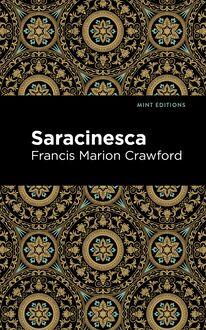-
 Univers
Univers
-
 Ebooks
Ebooks
-
 Livres audio
Livres audio
-
 Presse
Presse
-
 Podcasts
Podcasts
-
 BD
BD
-
 Documents
Documents
-
- Cours
- Révisions
- Ressources pédagogiques
- Sciences de l’éducation
- Manuels scolaires
- Langues
- Travaux de classe
- Annales de BEP
- Etudes supérieures
- Maternelle et primaire
- Fiches de lecture
- Orientation scolaire
- Méthodologie
- Corrigés de devoir
- Annales d’examens et concours
- Annales du bac
- Annales du brevet
- Rapports de stage
La lecture à portée de main
Vous pourrez modifier la taille du texte de cet ouvrage
Découvre YouScribe en t'inscrivant gratuitement
Je m'inscrisDécouvre YouScribe en t'inscrivant gratuitement
Je m'inscrisEn savoir plus
Vous pourrez modifier la taille du texte de cet ouvrage
En savoir plus

Description
Liza of Lambeth (1897) is a novel by W. Somerset Maugham. Written while the author was living as a medical student in London, the Maugham’s debut marked an electrifying start to an illustrious career in literature. Controversial for its portrayal of infidelity, domestic violence, and women’s reproductive health, Liza of Lambeth is a gritty realist tale that takes an honest look at the everyday struggles of actual Londoners in a time of celebration and nostalgia for the Empire. Set in 1887, the year of Queen Victoria’s Golden Jubilee, Liza of Lambeth follows a young woman in her life as a factory worker and caretaker for her ailing mother. Although she is only 18, Liza Kemp is a hard worker who desires more from life than that which she was born into. When a rare holiday gives her the chance to unwind in the countryside with a group of friends, she takes a much-needed break from her daily responsibilities to partake in a carriage ride. There, she meets Jim Blakeston, a married father of five who has recently moved to a home near Liza’s. Drunk on beer, she begins to feel attracted to the man, who sneaks a kiss before the night draws to a close. Soon, they begin an ill-fated affair, sneaking off whenever possible to elude the suspicions of friends and family. As lust turns to violence, Liza learns too late the dangers of trusting men. With a beautifully designed cover and professionally typeset manuscript, this edition of W. Somerset Maugham’s Liza of Lambeth is a classic work of British literature reimagined for modern readers.
Sujets
Informations
| Publié par | Mint Editions |
| Date de parution | 28 mai 2021 |
| Nombre de lectures | 0 |
| EAN13 | 9781513288222 |
| Langue | English |
Informations légales : prix de location à la page 0,0350€. Cette information est donnée uniquement à titre indicatif conformément à la législation en vigueur.
Extrait
Liza of Lambeth
W. Somerset Maugham
Liza of Lambeth was first published in 1897.
This edition published by Mint Editions 2021.
ISBN 9781513283203 | E-ISBN 9781513288222
Published by Mint Editions ®
minteditionbooks .com
Publishing Director: Jennifer Newens
Design & Production: Rachel Lopez Metzger
Project Manager: Micaela Clark
Typesetting: Westchester Publishing Services
C ONTENTS I II III IV V VI VII VIII IX X XI XII
I
I t was the first Saturday afternoon in August; it had been broiling hot all day, with a cloudless sky, and the sun had been beating down on the houses, so that the top rooms were like ovens; but now with the approach of evening it was cooler, and everyone in Vere Street was out of doors.
Vere street, Lambeth, is a short, straight street leading out of the Westminster Bridge Road; it has forty houses on one side and forty houses on the other, and these eighty houses are very much more like one another than ever peas are like peas, or young ladies like young ladies. They are newish, three-storied buildings of dingy grey brick with slate roofs, and they are perfectly flat, without a bow-window or even a projecting cornice or window-sill to break the straightness of the line from one end of the street to the other.
This Saturday afternoon the street was full of life; no traffic came down Vere Street, and the cemented space between the pavements was given up to children. Several games of cricket were being played by wildly excited boys, using coats for wickets, an old tennis-ball or a bundle of rags tied together for a ball, and, generally, an old broomstick for bat. The wicket was so large and the bat so small that the man in was always getting bowled, when heated quarrels would arise, the batter absolutely refusing to go out and the bowler absolutely insisting on going in. The girls were more peaceable; they were chiefly employed in skipping, and only abused one another mildly when the rope was not properly turned or the skipper did not jump sufficiently high. Worst off of all were the very young children, for there had been no rain for weeks, and the street was as dry and clean as a covered court, and, in the lack of mud to wallow in, they sat about the road, disconsolate as poets. The number of babies was prodigious; they sprawled about everywhere, on the pavement, round the doors, and about their mothers’ skirts. The grown-ups were gathered round the open doors; there were usually two women squatting on the doorstep, and two or three more seated on either side on chairs; they were invariably nursing babies, and most of them showed clear signs that the present object of the maternal care would be soon ousted by a new arrival. Men were less numerous but such as there were leant against the walls, smoking, or sat on the sills of the ground-floor windows. It was the dead season in Vere Street as much as in Belgravia, and really if it had not been for babies just come or just about to come, and an opportune murder in a neighbouring doss-house, there would have been nothing whatever to talk about. As it was, the little groups talked quietly, discussing the atrocity or the merits of the local midwives, comparing the circumstances of their various confinements.
“You’ll be ’avin’ your little trouble soon, eh, Polly?” asked one good lady of another.
“Oh, I reckon I’ve got another two months ter go yet,” answered Polly.
“Well,” said a third. “I wouldn’t ’ave thought you’d go so long by the look of yer!”
“I ’ope you’ll have it easier this time, my dear,” said a very stout old person, a woman of great importance.
“She said she wasn’t goin’ to ’ave no more, when the last one come.” This remark came from Polly’s husband.
“Ah,” said the stout old lady, who was in the business, and boasted vast experience. “That’s wot they all says; but, Lor’ bless yer, they don’t mean it.”
“Well, I’ve got three, and I’m not goin’ to ’ave no more bli’me if I will; ’tain’t good enough—that’s wot I says.”
“You’re abaht right there, ole gal,” said Polly, “My word, ’Arry, if you ’ave any more I’ll git a divorce, that I will.”
At that moment an organ-grinder turned the corner and came down the street.
“Good biz; ’ere’s an organ!” cried half a dozen people at once.
The organ-man was an Italian, with a shock of black hair and a ferocious moustache. Drawing his organ to a favourable spot, he stopped, released his shoulder from the leather straps by which he dragged it, and cocking his large soft hat on the side of his head, began turning the handle. It was a lively tune, and in less than no time a little crowd had gathered round to listen, chiefly the young men and the maidens, for the married ladies were never in a fit state to dance, and therefore disinclined to trouble themselves to stand round the organ. There was a moment’s hesitation at opening the ball; then one girl said to another:
“Come on, Florrie, you and me ain’t shy; we’ll begin, and bust it!”
The two girls took hold of one another, one acting gentleman, the other lady; three or four more pairs of girls immediately joined them, and they began a waltz. They held themselves very upright; and with an air of grave dignity which was quite impressive, glided slowly about, making their steps with the utmost precision, bearing themselves with sufficient decorum for a court ball. After a while the men began to itch for a turn, and two of them, taking hold of one another in the most approved fashion, waltzed round the circle with the gravity of judges.
All at once there was a cry: “There’s Liza!” And several members of the group turned and called out: “Oo, look at Liza!”
The dancers stopped to see the sight, and the organ-grinder, having come to the end of his tune, ceased turning the handle and looked to see what was the excitement.
“Oo, Liza!” they called out. “Look at Liza; oo, I sy!”
It was a young girl of about eighteen, with dark eyes, and an enormous fringe, puffed-out and curled and frizzed, covering her whole forehead from side to side, and coming down to meet her eyebrows. She was dressed in brilliant violet, with great lappets of velvet, and she had on her head an enormous black hat covered with feathers.
“I sy, ain’t she got up dossy?” called out the groups at the doors, as she passed.
“Dressed ter death, and kill the fashion; that’s wot I calls it.”
Liza saw what a sensation she was creating; she arched her back and lifted her head, and walked down the street, swaying her body from side to side, and swaggering along as though the whole place belonged to her.
“’Ave yer bought the street, Bill?” shouted one youth; and then half a dozen burst forth at once, as if by inspiration:
“Knocked ’em in the Old Kent Road!”
It was immediately taken up by a dozen more, and they all yelled it out:
“Knocked ’em in the Old Kent Road. Yah, ah, knocked ’em in the Old Kent Road!”
“Oo, Liza!” they shouted; the whole street joined in, and they gave long, shrill, ear-piercing shrieks and strange calls, that rung down the street and echoed back again.
“Hextra special!” called out a wag.
“Oh, Liza! Oo! Ooo!” yells and whistles, and then it thundered forth again:
“Knocked ’em in the Old Kent Road!”
Liza put on the air of a conquering hero, and sauntered on, enchanted at the uproar. She stuck out her elbows and jerked her head on one side, and said to herself as she passed through the bellowing crowd:
“This is jam!”
“Knocked ’em in the Old Kent Road!”
When she came to the group round the barrel-organ, one of the girls cried out to her:
“Is that yer new dress, Liza?”
“Well, it don’t look like my old one, do it?” said Liza.
“Where did yer git it?” asked another friend, rather enviously.
“Picked it up in the street, of course,” scornfully answered Liza.
“I believe it’s the same one as I saw in the pawnbroker’s dahn the road,” said one of the men, to tease her.
“Thet’s it; but wot was you doin’ in there? Pledgin’ yer shirt, or was it yer trousers?”
“Yah, I wouldn’t git a second-’and dress at a pawnbroker’s!”
“Garn!” said Liza indignantly. “I’ll swipe yer over the snitch if yer talk ter me. I got the mayterials in the West Hend, didn’t I? And I ’ad it mide up by my Court Dressmiker, so you jolly well dry up, old jellybelly.”
“Garn!” was the reply.
Liza had been so intent on her new dress and the comment it was exciting that she had not noticed the organ.
“Oo, I say, let’s ’ave some dancin’,” she said as soon as she saw it. “Come on, Sally,” she added, to one of the girls, “you an’ me’ll dance togither. Grind away, old cock!”
The man turned on a new tune, and the organ began to play the Intermezzo from the “Cavalleria”; other couples quickly followed Liza’s example, and they began to waltz round with the same solemnity as before; but Liza outdid them all; if the others were as stately as queens, she was as stately as an empress; the gravity and dignity with which she waltzed were something appalling, you felt that the minuet was a frolic in comparison; it would have been a fitting measure to tread round the grave of a première danseuse , or at the funeral of a professional humorist. And the graces she put on, the languor of the eyes, the contemptuous curl of the lips, the exquisite turn of the hand, the dainty arching of the foot! You felt there could be no questioning her right to the tyranny of Vere Street.
Suddenly she stopped short, and disengaged herself from her companion.
“Oh, I sy,” she said, “this is too bloomin’ slow; it gives me the sick.”
That is not precisely what she said, but it is impossible always to give the exact unexpurgated words of Liza and the other personages of the story, the reader is therefore entreated with his thoughts to piece out the necessary imperfections of the dialogue.
“It’s too bloomin’ slow,” she said again; “it gives me the sick. Let’s ’ave somethin’ a bit more lively than this ’ere waltz. You stand over there, Sally, an’ we’ll show ’em ’ow ter skirt dance.”
They all stopped
-
 Univers
Univers
-
 Ebooks
Ebooks
-
 Livres audio
Livres audio
-
 Presse
Presse
-
 Podcasts
Podcasts
-
 BD
BD
-
 Documents
Documents
-
Jeunesse
-
Littérature
-
Ressources professionnelles
-
Santé et bien-être
-
Savoirs
-
Education
-
Loisirs et hobbies
-
Art, musique et cinéma
-
Actualité et débat de société
-
Jeunesse
-
Littérature
-
Ressources professionnelles
-
Santé et bien-être
-
Savoirs
-
Education
-
Loisirs et hobbies
-
Art, musique et cinéma
-
Actualité et débat de société
-
Actualités
-
Lifestyle
-
Presse jeunesse
-
Presse professionnelle
-
Pratique
-
Presse sportive
-
Presse internationale
-
Culture & Médias
-
Action et Aventures
-
Science-fiction et Fantasy
-
Société
-
Jeunesse
-
Littérature
-
Ressources professionnelles
-
Santé et bien-être
-
Savoirs
-
Education
-
Loisirs et hobbies
-
Art, musique et cinéma
-
Actualité et débat de société
- Cours
- Révisions
- Ressources pédagogiques
- Sciences de l’éducation
- Manuels scolaires
- Langues
- Travaux de classe
- Annales de BEP
- Etudes supérieures
- Maternelle et primaire
- Fiches de lecture
- Orientation scolaire
- Méthodologie
- Corrigés de devoir
- Annales d’examens et concours
- Annales du bac
- Annales du brevet
- Rapports de stage




















